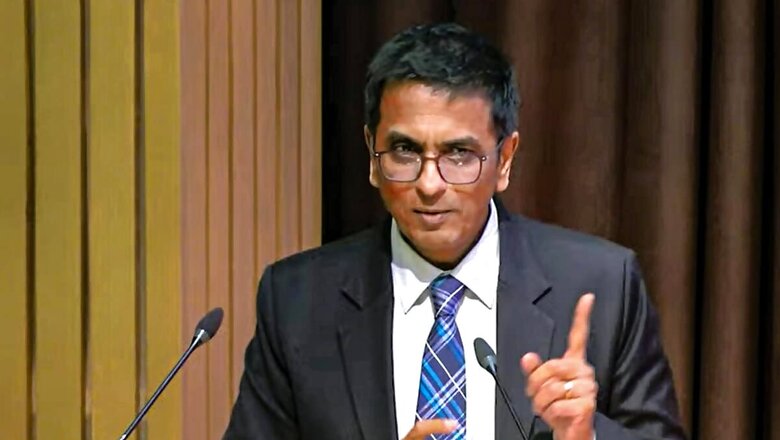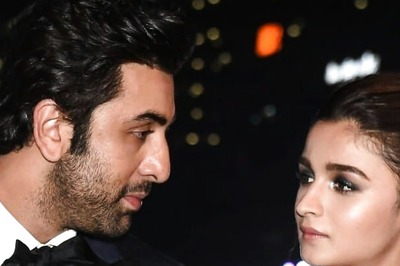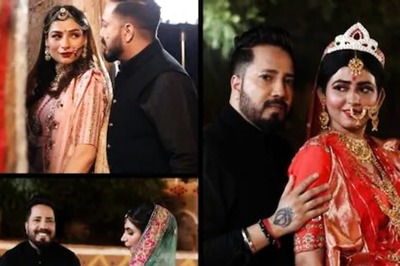
views
Standing by his minority opinion in the Supreme Court’s ruling in the same-sex marriage case, Chief Justice of India (CJI) DY Chandrachud said that often judgments rendered on Constitutional issues are a “vote of conscience”.
Speaking during the 3rd Comparative Constitutional Law discussion co-hosted by Georgetown University Law Center, Washington DC, and Society for Democratic Rights (SDR), New Delhi, the CJI also explained how the Supreme Court’s 2018 verdict decriminalising consensual homosexual sex paved the way for petitions asking to recognise same-sex marriage.
“Sometimes it is a vote of the conscience and vote of the constitution and I stand by what I said,” he said, according to a report by Bar and Bench.
Chandrachud noted that since Supreme Court’s inception in 1950 till date, out of all the Constitution Bench judgments, there have been only thirteen instances where the CJI’s opinion was in minority.
“I was in minority where I held queer couple can adopt if they are together and then three of my colleagues differed that not allowing queer couples to adopt was discriminatory but then it was for the parliament to decide this,” he said.
“In 2018 we reversed a judgment of the SC where we decriminalized consensual homosxual relations and that was not the end of the rights for LGBTQIA+. Then we had petitions for same sex marriage recognition under the secular law of Special Marriage Act (SMA),” he added
Talking about the petitions for same sex marriage recognition under SMA, the CJI noted that the law spoke about prohibited degrees of relation and “was for man and woman.”
“One of the key questions was does the court have the jurisdiction to enter into this domain,” he stated, as per the Bar and Bench report.
CJI said that top court unanimously decided that while we have progressed a great deal by recognising queer as equal participants in society and legislating on it falls within role of parliament and by judicial fiat we cannot enter this which gets into succession, inheritance among other things.
“But where I got into minority was by recognising civil unions and we held that conscious and subconscious was larger than religion. Three of my colleagues felt that right to form unions also falls within the role of the parliament,” he elaborated.
Elaborating on what led him to his decision, the CJI said instead of giving effect to social majority, the basis for a judge’s decision should be “constitutional morality” grounded in values of liberty, equality, expression and the “unique oneness of our civilisation”, among others.


















Comments
0 comment